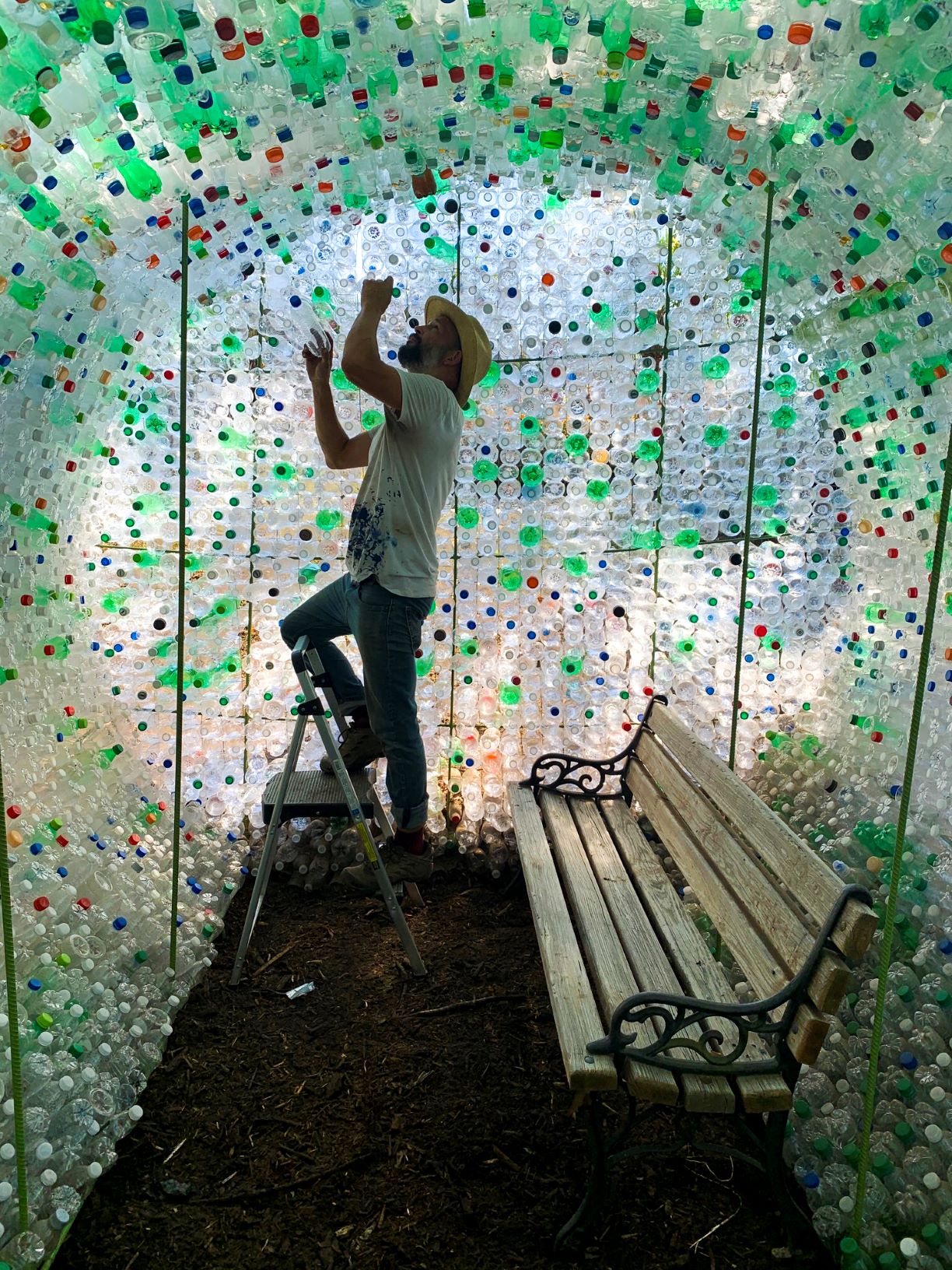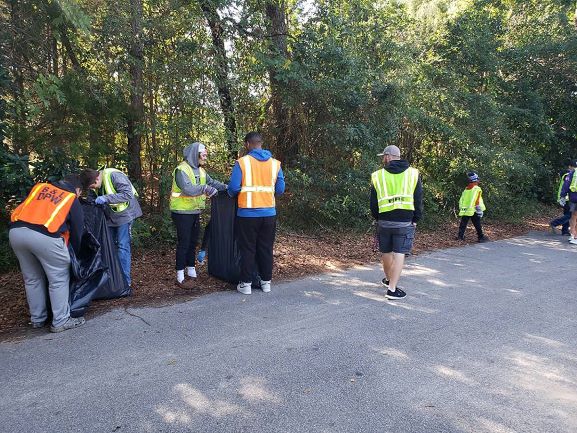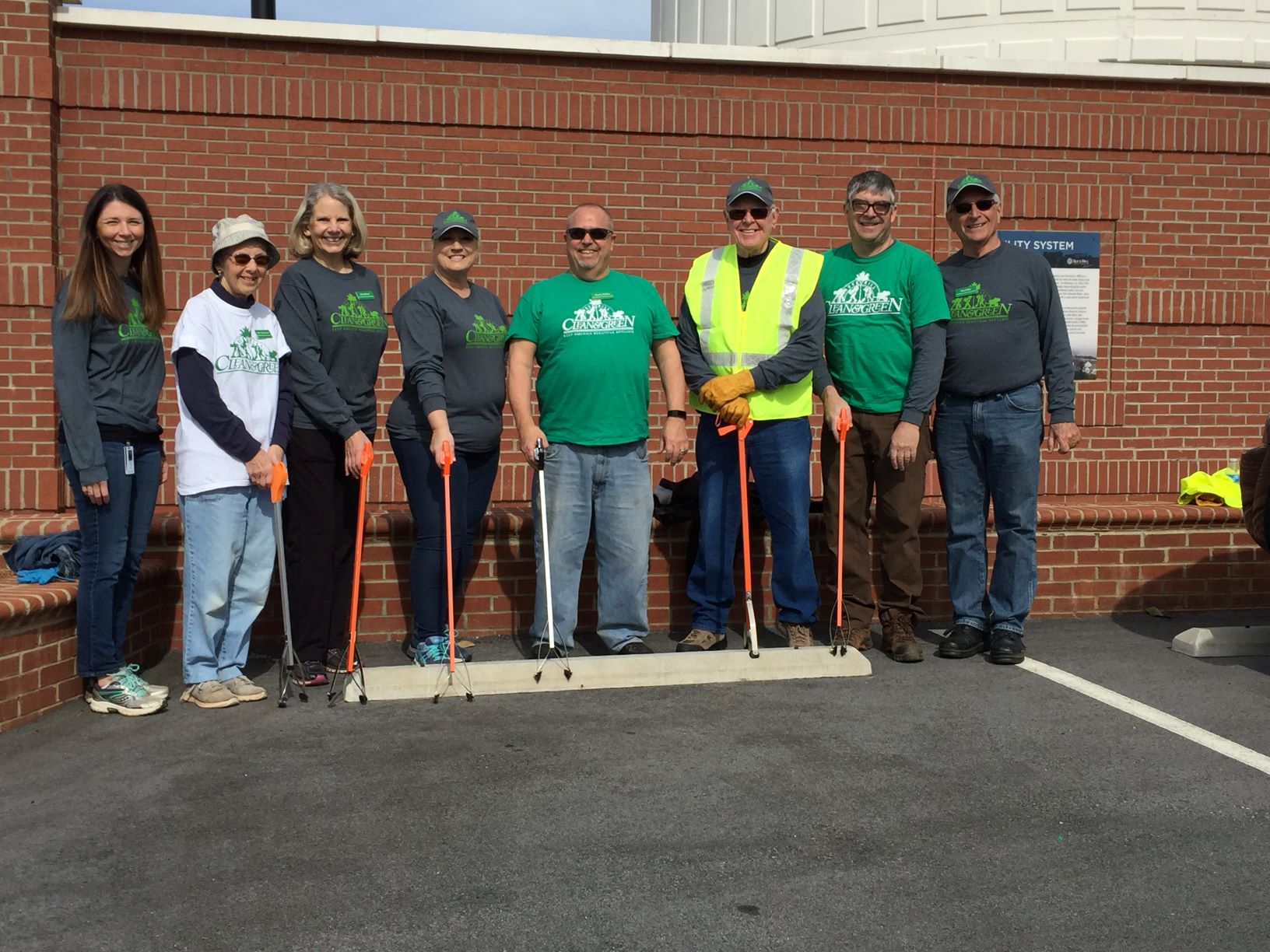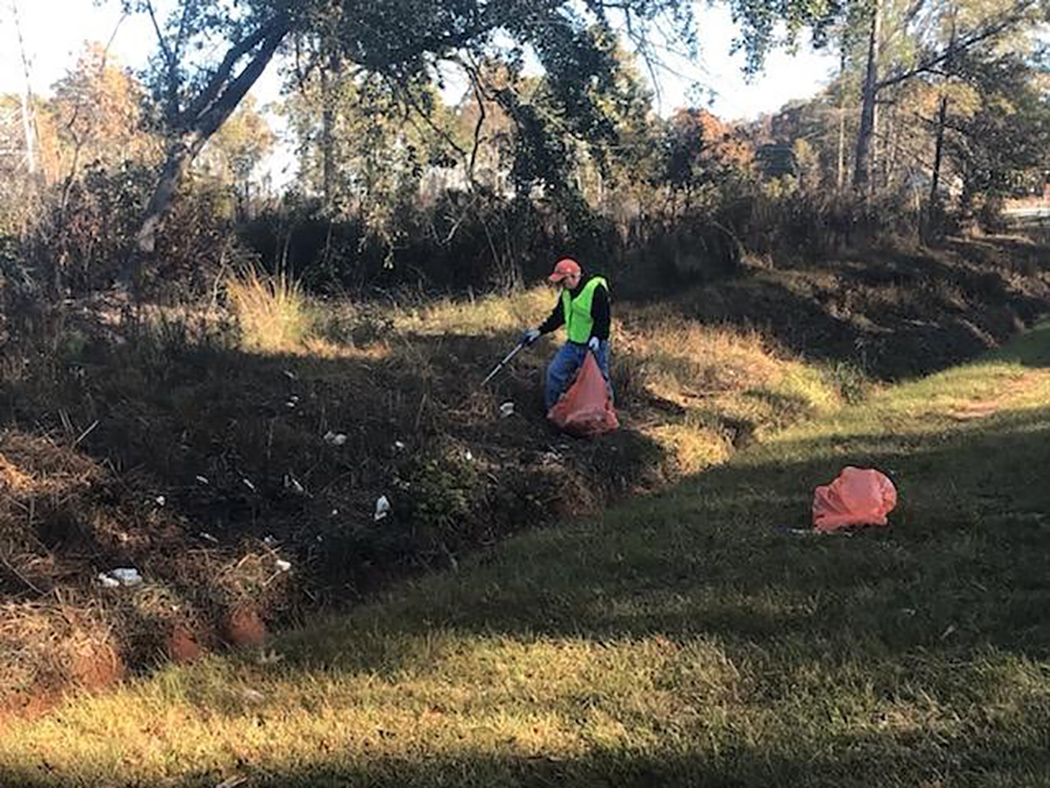Cities Build Partnerships to Reduce Litter
Across South Carolina, cities and towns are joining forces with their counties and the state to fight litter. From Keep America Beautiful to PalmettoPride to local efforts like Twin the Bin, Grab a Bag, and Clean & Green, many levels of government are working to support clean-up efforts with limited resources.

The City of West Columbia worked with artist Karl Larsen to create an installation illustrating the magnitude of plastic waste in the U.S. Photo: City of West Columbia.
Most efforts rely on volunteers, including the Adopt-A-Highway program or local school programs. Others use a provision in state law allowing communities to put those sentenced by a judge to community service — especially those convicted of littering — to work along the roadways.
All litter campaigns come with some cost, whether it is the city employee who has to monitor the community service workers, or funding the equipment — bags, gloves, safety vests and trash grabber tools.
While the state can enforce hefty fines for littering, in addition to the cleanup requirement for the violation, enforcement is difficult and can be costly for small towns with limited policing resources.
For the Town of Batesburg-Leesville, hiring part-time employees to pick up roadside trash has been a significant help. Much of the litter problem for the town, which has major pass-through roads, comes from unsecured loads in the back of trucks, according to Town Manager Ted Luckadoo.

Litter collection efforts in Batesburg-Leesville include pickup events with high school students.
Photo: Town of Batesburg-Leesville.
"What you see on the roadside when it's piled up with litter, that is not people throwing stuff out the windows as much as that's from unsecured loads," Luckadoo said. "The trucks are going to the dump or they're going to the landfill to dispose of it, but they have not secured their load and a complete garbage bag flies out of the back and bursts open."
Last summer, the town hired two high school students to work part-time picking up trash in the town during the summer.
"We hired the part-time employees to see what kind of impact we could have — how much we could collect," Luckadoo said. "They were able to pick up 57 huge bags of trash, over 50 tires, a list of bulk items — mattresses, box springs, sofas down in creeks and things like that."
The town then decided to hire someone to work about 20 hours a week throughout the year, picking up trash. Luckadoo said there has been plenty to keep the employee busy.
"By the time he picks a road up and another few weeks go by, he's got to go back to that road," he said.
A recent trash pickup event with athletes from the local high school netted nearly a half-ton of garbage, including some televisions and tires, but largely bagged garbage.
"I don't know if there is a solution to litter other than campaigning for people not to do it," Luckadoo said.
The City of Rock Hill is banking on community pride as a solution.

Rock Hill Clean & Green pushes for volunteer cleanup events in the spring of each year.
Photo: City of Rock Hill.
"Rock Hill is becoming known for sports tourism, and we've got a lot of visitors from all over," said Elizabeth Morgan, who has been the city's environmental educator for the past 14 years. "We've got the world coming to Rock Hill, and we want to look our best."
Morgan said she works closely with the county and with the city's Clean & Green board to keep a steady flow of volunteers picking up trash. Once a month, a city employee works on a Saturday to oversee the court-ordered, community service trash collectors. The city also provides equipment, such as bags, gloves, safety vests and trash grabbers, to both groups. While there is some enforcement through the county, the city's efforts focus on prevention and individual cleanup efforts.
"The Great American Cleanup is in March, and Rock Hill has a big festival in April," Morgan said. "We push for the March-through-May timeframe to be when we try to get groups to spruce up for spring."
Morgan's office uses various communications channels, especially social media. The city also seeks out volunteers and works with nearby Winthrop University to get college students involved.
Morgan focuses her litter prevention education efforts on schoolchildren, starting with first graders and talks about the importance of litter prevention, recycling and water quality.
From her vantage point, the biggest trash offender is cigarette butts.
"We have done outreach campaigns and put ash cans around town, trying to combat the idea that cigarettes aren't litter," Morgan said.
Greenwood County and the City of Greenwood took litter abatement efforts to a new level last summer with a full-time employee who works partly for the city and partly for the county. Litter Prevention Coordinator Maggie McMahon coordinates both education and cleanup efforts.

Greenwood County and the City of Greenwood have partnered to create a full-time litter prevention coordinator position. Photo: Greenwood County, City of Greenwood.
"I tell people 'I deal with trash all day every day. That's my one job,'" McMahon said.
She implements a three-part approach to the problem: educate, motivate and encourage.
Education includes young people, but also teaching adults the penalties for littering and the impact litter has on the environment, not just its unsightly appearance. On the county side, officers are making a stronger effort to enforce the laws by identifying who is dumping trash illegally.
She also motivates people to get out and clean up problem areas. McMahon has created a litter hot-spot map so folks who want to participate in the "#grababag" social media campaign promoted by the SC Department of Transportation can see where the biggest problems are. McMahon also makes equipment available for individuals or groups who want to clean up.
West Columbia took on its litter issues with a solid waste and recycling grant from the SC Department of Health and Environmental Control. The grant allowed the city to install more than 20 sets of trash and recycling bins in areas with high foot traffic and high litter.
The city also worked with artist Karl Larsen to create an art installation, "Three Seconds and Counting … " of locally sourced plastic bottles to show the amount of plastic waste that occurs in the United States every three seconds.
Using billboard advertising and social media campaigns, West Columbia worked to educate people about litter penalties. It also stepped up its enforcement efforts and partnering with Keep the Midlands Beautiful to coordinate pickup days for those convicted of littering.
"Although we still have litter in these areas, you can visually tell there has been a reduction," said Anna Huffman, West Columbia's communications and technology director. "There have also been noticeable increases in the amount of trash and recycling in the bins."
Litter challenges are often numerous, and available resources are usually limited. Even so, partnerships and creativity among local governments and other entities always have the ability to make an impact on their community's litter problems.
Learn more about how cities and towns can operate litter prevention efforts through the SC Litter Commission's Best Practices Guide for Community Service, available online.
